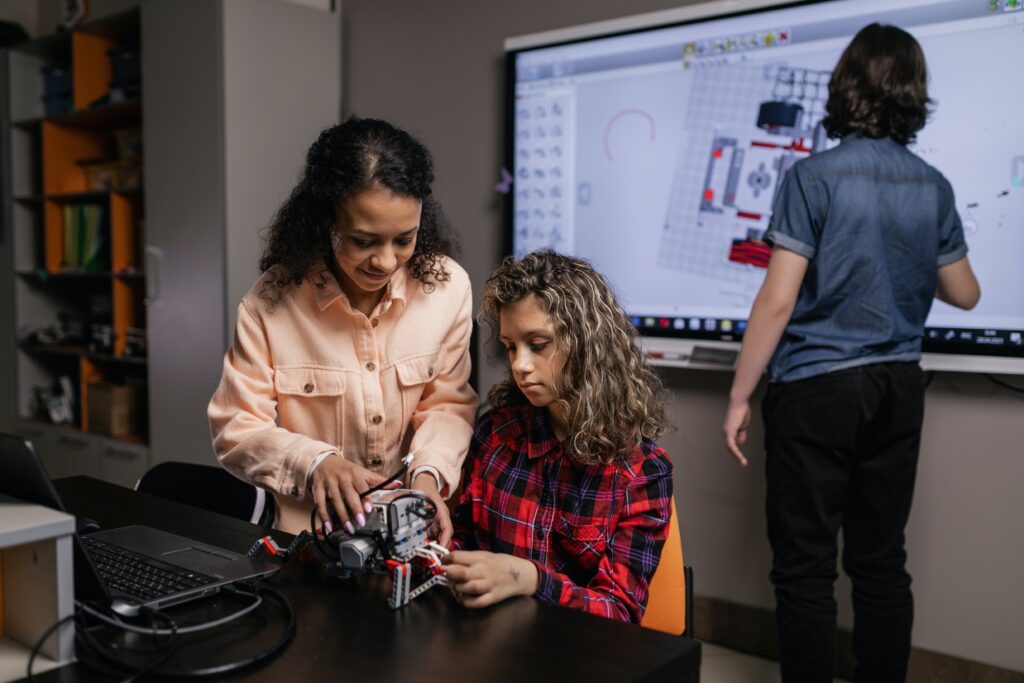During this summer, a team of students from MIT embarked on a journey to the sou …
Reevaluating the way we approach career education is crucial
Carlos Changemaker

California Governor Gavin Newsom has issued an executive order calling for the development of a Master Plan on Career Education. This plan is seen as a crucial step in preparing Californians for the anticipated significant changes that will occur in the workforce. According to the “Future of Jobs Report 2023” by the World Economic Forum, around 23% of jobs are expected to undergo changes in the next five years.
I support the governor’s objectives, which include expanding career education pathways in K-12 schools, increasing dual-enrollment and work-based learning opportunities, and strengthening the connections between secondary/post-secondary education and the business community.
However, while these goals are important, they are not enough to ensure equal access to career and life success opportunities for all K-12 students, regardless of their geographical location or circumstances. To maximize success, the master plan must also address the entrenched perception that K-12 career education is separate from and inferior to the academic curriculum. This can be achieved by implementing policies that require the integration of real-world career-based applications into academic learning across all K-12 grades and subjects. In educational literature, this is referred to as “contextualized teaching and learning.”
The implementation of a career-contextualized learning approach could involve connecting elementary grade math lessons on ratios and percentages to their applications in diverse careers. For example:
- Digital media (image size and resolution; video/animation frame speed; file transfer speed).
- Architecture/construction technology (material weight to strength ratio, linear and cubic measurements, roof pitch, stair rise to run ratios, construction cost price per square foot)
- Data analytics (e-commerce: ratio of web page visits to link clicks; pro sports team performance: shots taken to field goals made; climate change: fossil fuel vs. alternative energy usage).
The primary policy goal of the master plan should be to promote educational equity and provide more equal career opportunities. Key strategies to achieve this goal include:
- Expanding differentiated instruction to better support students with diverse learning needs, including English learners and those from low socioeconomic backgrounds.
- Overcoming geographic barriers by utilizing virtual technologies to connect classrooms with career professionals from different regions.
- Boosting student engagement and self-efficacy by providing students with opportunities to interact with diverse career professionals through activities such as internships, mentorships, and virtual meetings.
- Increasing participation in career pathways and dual enrollment programs by integrating real-world career-based applications into the curriculum across all K-12 grades and subjects.
- Expanding exposure to college and career opportunities through collaboration with higher education institutions and the business sector to develop and implement K-12 contextualized teaching and learning curriculum.
- Fostering skills identified by employers as high priority through contextualized learning experiences that encourage creativity, collaboration, communication, and critical thinking.
The master plan should include strategies for pilot studies that involve the creation, implementation, and evaluation of K-12 curriculum using real-world career-based applications. Collaborative teams consisting of K-12 educators, post-secondary institutions, and members of the business community should lead these pilot studies, which should include schools from economically and geographically diverse regions of the state. Insights gained from the pilot studies will guide the statewide implementation of the plan.
For many years, our K-12 education system has been disconnected from the ever-changing world of work. We are now at a critical point where we must advocate for transformative change to equip students with the knowledge, skills, and attitudes necessary for success in their future careers and lives.
•••
Brian F. Donnelly serves as the executive director of Learning Curved, a California nonprofit organization dedicated to providing opportunities for students to discover and explore emerging career paths.


